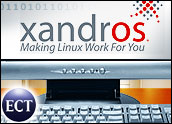
Orion Multisystems has announced two models of the Orion Cluster Workstation, a computing platform for engineering and scientific professionals who need to solve computationally complex problems.
Orion’s systems are based on clustering, which is a means of exploiting processor parallelism to generate high-performance computing capabilities. An Orion cluster workstation is designed as a single computer. A single system board consists of twelve nodes for the desktop model, while the deskside model can scale up to 96 nodes using eight interconnected boards.
“Orion has created a new category of systems for high performance computing,” said Stacey Quandt, senior business analyst at the Robert Frances Group. “The first mover advantage is important for a young company looking to capitalize on transitioning shared computation resources to personalized computing across a range of industries.”
Orion Cluster Workstations are one of the first to offer a standard Linux platform the development community can use for building cluster applications.
Most current cluster installations are ad hoc systems that do not adhere to standard architectures or binary application footprints. Orion systems, with Transmeta’s Efficeon processors, are built around industry standards for clustering: x86, Linux and standard parallel programming libraries. Existing Linux cluster software runs on Orion Cluster Workstations without modification.
“We already have strong demand for our Cluster Workstations from major corporations and institutions in a variety of industries,” said Colin Hunter, president and chief executive officer at Orion Multisystems. “We expect to take full advantage of the multibillion dollar business opportunity that exists for high performance technical computing.”
The desktop model is priced at less than $10,000 and will be available October 1. The deskside model is priced at less than $100,000 and will be available during the latter part of the fourth quarter.
Orion Multisystems was founded in 2003 by Colin Hunter and Ed Kelly. Both Hunter and Kelly, vice president of engineering, cofounded Transmeta Corporation and have been involved with several Silicon Valley companies such as Sun Microsystems, Ready Systems and others.








































